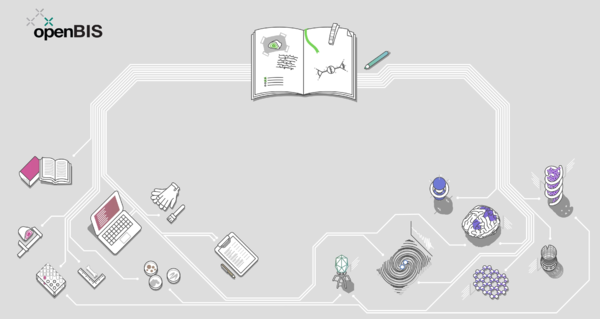
openBIS is a combined FAIR data management platform, Electronic Laboratory Notebook (ELN) and Inventory Management System, under active development since 2007. Whilst originally developed primarily as a Laboratory Information Management System (LIMS) to manage and share large quantities of “omics” data produced in collaborative Swiss systems biology projects, since 2013 the development has focused primarily on introducing an ELN and Inventory Management module to extend and facilitate usage also in small- to medium-size quantitative research laboratories. openBIS enables scientists to meet the ever increasing requirements from funding agencies, journals, and academic institutions to publish data according to the FAIR data principles – according to which data should be Findable, Accessible, Interoperable and Reusable.
The openBIS platform has a flexible and modular framework that allows adaptation for emerging new use cases. Moreover, it offers several APIs for working with data programmatically. One example is the interaction with the popular Jupyter notebooks for data analysis, which can be either used programmatically or directly created from the user interface.
openBIS is time-proven and field-tested in many real-world applications in academia and industry.
Selected features
- User management. Users can have different roles: Instance admin, Space/Project admin, Space/Project User, Space/Project observer, Instance observer. For a detailed explanation of the capability of each role, please check the openBIS documentation.
- Audit trail. All modifications made to any entity in the system are recorded and stored in the database.
- History. By default, Space admins and Instance admins are allowed to delete entities. This permission can be completely removed upon request. The metadata history of deleted entities is kept in the database.
- Data preservation. The data uploaded in openBIS is stored in datasets, which are immutable by definition. Data stored in datasets cannot be modified. Modified data must be uploaded in a new dataset.
- Data archive to tape. openBIS can be configured so that datasets can be archived to affordable tape storage when no longer needed. Data can be unarchived and put back to online storage when needed.
openBIS ELN and Inventory Management module
openBIS enables scientists to document their daily experimental or computation work, store any related experimental raw and derived data and link everything to materials, samples and protocols stored in the lab inventory. Visit the openBIS website for more information.
openBIS BigDataLink
The BigDataLink module allows to use openBIS as a metadata catalogue for existing large datasets (hundreds of TBs to PBs) that cannot be conveniently moved into the openBIS-managed storage. This tool uses a combination of git and git annex to manage versions of large datasets on cloud and HPC storage, and creates links in openBIS to such large datasets. openBIS server supports both managed and linked datasets in one data space, and allows links to be maintained between them to cover complex provenance graphs. Read more about openBIS BigDataLink).
The complete openBIS documentation can be found here.
